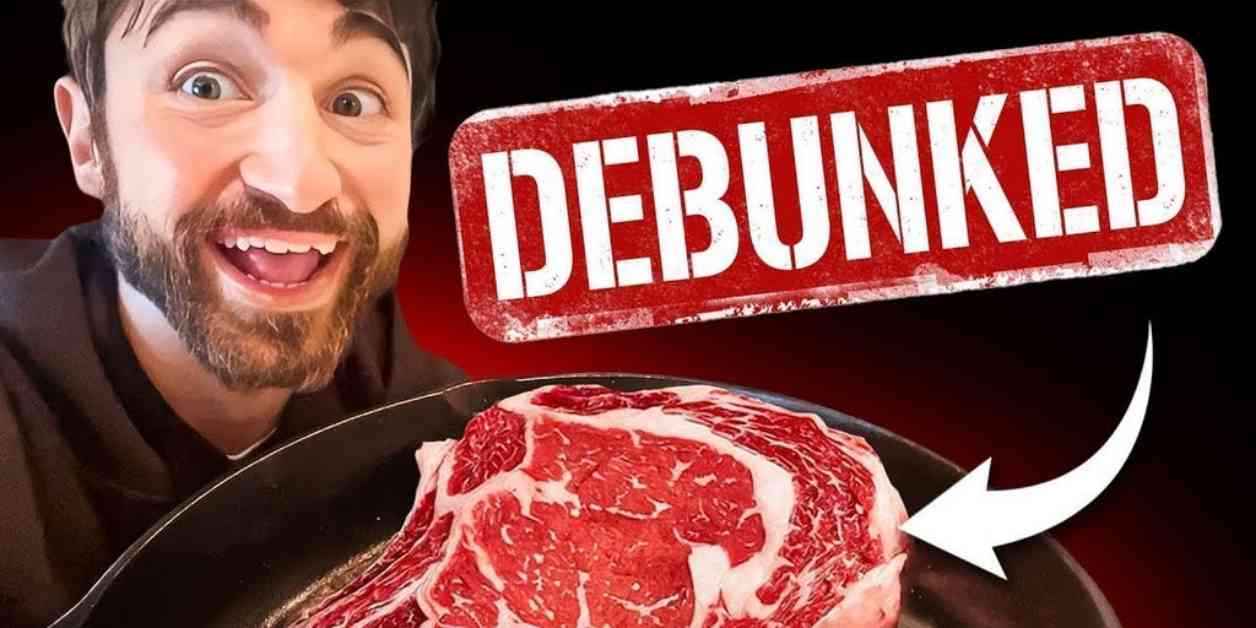A Harvard medical student and researcher, Nick Norwitz, recently released a video debunking eight common myths surrounding the carnivore diet, a meal plan that consists of consuming only animal products like meat, dairy, and eggs. Despite the popularity of the carnivore diet among meat enthusiasts, it often faces criticism from those who prefer plant-based foods like vegetables, fruits, grains, and legumes. Norwitz, a self-described “academician” with a PhD in metabolic health, shared his passion for science with Fox News Digital, shedding light on the misconceptions surrounding this controversial eating regimen.
Debunking the Carnivore Diet Myths
Myth No. 1: There is no evidence for the carnivore diet
Norwitz highlighted the lack of randomized controlled trials on the carnivore diet, despite several research studies indicating its benefits. A Harvard study with over 2,000 participants showed increased satisfaction and improvements in overall health and various medical conditions. Norwitz’s own research demonstrated positive effects on inflammatory bowel disease and restrictive eating disorders. While the results are promising, he emphasized the need for further trials to validate the diet’s efficacy for specific disorders.
Myth No. 2: The diet increases the risk of scurvy
Addressing concerns about vitamin C deficiency on a carnivore diet, Norwitz explained that consuming fresh, grass-fed beef can provide a significant amount of vitamin C. He shared his own experience of maintaining normal vitamin C levels during a six-month carnivore diet experiment, challenging the notion that the diet automatically leads to scurvy.
Myth No. 3: Lack of fiber will cause constipation
Contrary to the belief that a carnivore diet devoid of fiber can lead to constipation, Norwitz clarified that the body still processes nutrients efficiently, resulting in reduced fecal mass. He noted that while some individuals benefit from low-fiber diets, a diverse microbiome is essential for long-term gut health.
Expert Perspectives and Insights
Dr. Marc Siegel, a clinical professor of medicine at NYU Langone Health, cautioned against the carnivore diet’s potential health risks, citing saturated fats and cholesterol as concerns. He recommended the Mediterranean diet for its balanced approach to nutrition, emphasizing the benefits of unsaturated fats and antioxidants.
Dr. Georgia Ede, a Harvard-trained psychiatrist specializing in nutritional and metabolic psychiatry, praised the carnivore diet as a valuable tool in addressing various health issues, such as food sensitivities, constipation, and weight loss plateaus. She emphasized the nutritional value of meat, seafood, poultry, and eggs, debunking the misconception that these foods are harmful to human health.
Overall, while the carnivore diet may offer benefits to some individuals, it may not be suitable for everyone. Norwitz stressed the importance of personalized dietary choices based on individual needs and biomarkers, encouraging people to stay informed about their health risks and make informed decisions.
In conclusion, the carnivore diet remains a subject of debate in the realm of nutrition, with conflicting perspectives on its efficacy and safety. As research continues to explore the impacts of this eating regimen, it is crucial for individuals to consider their unique health requirements and consult with healthcare professionals before making significant dietary changes. The evolving landscape of nutrition science underscores the complexity of human dietary needs and the importance of informed decision-making in pursuit of optimal health and well-being.


